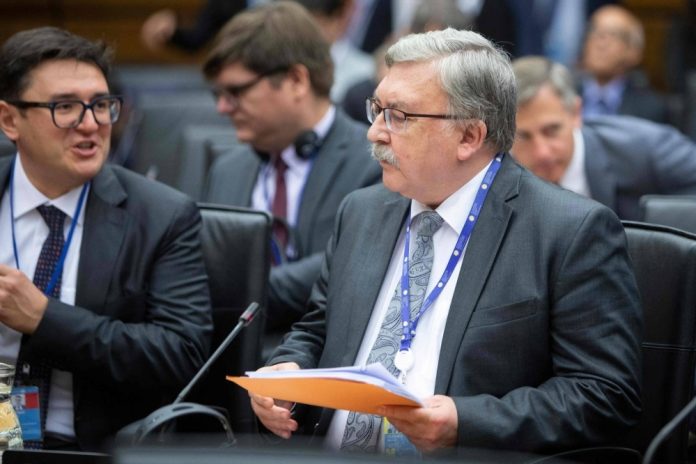The U.S. is concerned over Russia’s announcement that it is reversing ratification of the nuclear test ban treaty.
Russia’s envoy to the Comprehensive Nuclear Test Ban Treaty Organisation (CTBTO) said that Russia is cancelling ratification of the treaty. Washington is now concerned about this fact, realizing that it jeopardises relations between the nuclear powers.
Mikhail Ulyanov increased tensions between the two states with his statement. He said on X that “Russia plans to revoke ratification (which took place in the year 2000) of the Comprehensive Nuclear-Test-Ban Treaty.”
Mikhail Ulyanov added that “The aim is to be on equal footing with the US who signed the treaty, but didn’t ratify it. Revocation doesn’t mean the intention to resume nuclear tests.”
The CTBT has been signed by 187 countries and ratified by 178 but cannot go into force until eight specific holdouts have signed and ratified it. China, Egypt, Iran, and Israel signed but not ratified it and North Korea, India and Pakistan did not sign at all.
The U.S. has signed the treaty but not ratified it; however, it did impose a moratorium on nuclear weapons test explosions in 1992, which it has no intention of abandoning.
A move like this by any state party needlessly endangers the global norm against nuclear explosive testing, a US State Department spokesperson said in a statement.
Ulyanov’s statement came shortly after Russian President Vladimir Putin said Moscow might consider refusing to follow through on ratifying the CTBT.
This was followed by a statement from Robert Floyd, the executive director of the CTBTO that “It would be concerning and deeply unfortunate if any state signatory were to reconsider its ratification of the CTBT.”
He also noted that the Russian Federation has maintained a firmly positive stance towards the CTBT from its inception, participating in disarmament, as well as signing the treaty on its opening day on September 24, 1996, and ratifying it in June 2000.
This is why Russia’s withdrawal from the treaty could be a serious blow to the organization, as there are still eight key holdout countries that must ratify the treaty for it to enter into force. Floyd said that he looks forward to have close cooperation between the Russian Federation and all members that have taken responsibility for creating a world without the nuclear threat.
